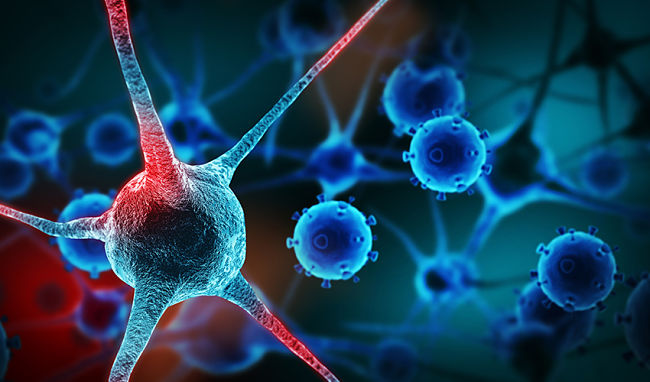Myths About Cancer You Always Believed

Cancer is a complex disease characterized by the proliferation of tumor cells in organs and tissues. Despite the fact that in recent decades there have been numerous investigations and efforts to prevent, diagnose and cure it, there are still some questions to be resolved by science.

Table of Contents
Myths about cancer.
News is constantly emerging about new advances in cancer research. However, not all are true or hopeful. In this article we will inform you about which are the myths about cancer that you have always believed.
1. Cancer is contagious.
There is no scientific evidence to show that a healthy person can acquire the disease from being in direct contact with a person with cancer (kisses, sneezes, sexual relations, etc.).
However, some research has found that people who have received organ transplants are more likely to develop cancer. Likewise, less than 50 cases of pregnant patients with melanoma and leukemia whose children have developed the disease have been reported in the world; so, this myth about cancer could not be fully explained.
2. There are no vaccines for cancer.
Although there is no vaccine that prevents cancer, in the last decade the Human Papilloma Virus (HPV) vaccine has been applied, which has been shown to prevent infection by the HPV serotype that is related to the appearance of cancer cervix.
Even so, its application has generated controversy, since it is only used in girls and adolescents, generating adverse effects that have led to its withdrawal from the vaccination schemes in some countries. In addition, it is worth clarifying that the Hepatitis B vaccine has indirectly decreased the rate of hepatocellular carcinoma.
3. Cancer cannot be detected before symptoms occur.
If it is possible to detect some types of cancer before they generate symptoms. In the case of women, routine diagnostic tests such as breast examination plus bilateral mammography and colposcopy plus vaginal cytology are performed to rule out changes related to breast cancer and cervical cancer, respectively, being able to find millimeter lesions before they generate symptom.
In the case of men, a rectal examination is performed to show the characteristics of the prostate and the determination of total and free prostate antigen in the blood, which can help in an early diagnosis of prostate cancer before the man develops urinary symptoms. Likewise, routine colonoscopy has been useful in the early detection of colon cancer; therefore, the cancer myth that cancer cannot be detected prior to symptoms is false.
4. Cancer cannot be detected before any lesion appears.
This myth about cancer is false. Science has tried to develop other more sophisticated methods that help detect cancer before the appearance of symptoms and even millimeter lesions, taking into account the presence of mutations in some genes (oncogenes), causing an increase in the probability of tumor cell proliferation.
In the case of breast cancer, there is a genetic test in the blood that detects mutations in the genes BRC1 (Brest cancer 1- English breast cancer 1) and BRC2 (Breast cancer 1- English breast cancer 2), which can predispose to the development of breast, ovarian and other types of tumors.
5. Cancer is not related to viral processes.
This myth about cancer is also false, since science has determined that people infected with some types of viruses are more likely to develop certain types of tumors.
Some examples are HPV with cancer of the cervix , anus, penis, head and neck; Hepatitis B and C viruses associated with hepato-carcinoma, Epstein Barr virus associated with nasopharyngeal carcinoma, HTLV-1 (human T-cell lymphotropic virus type 1) with leukemia and non-Hodgkin’s lymphoma, and human Herpes virus type 8 which is associated with Kaposi’s Sarcoma.
6. Breast cancer only affects women.
This myth about cancer is false. Men can get breast cancer because they also have mammary glands (less developed than women). It is worth noting that less than 1% of breast cancer cases occur in men.
7. When the cancer is advanced there is nothing to do?
It is believed that when a metastatic tumor is diagnosed there are no therapeutic options, however, there are options such as radiotherapy, chemotherapy and surgery in some cases, which are used not only to treat the disease but to alleviate the symptoms of distant infiltration and improve the patient’s quality of life.


